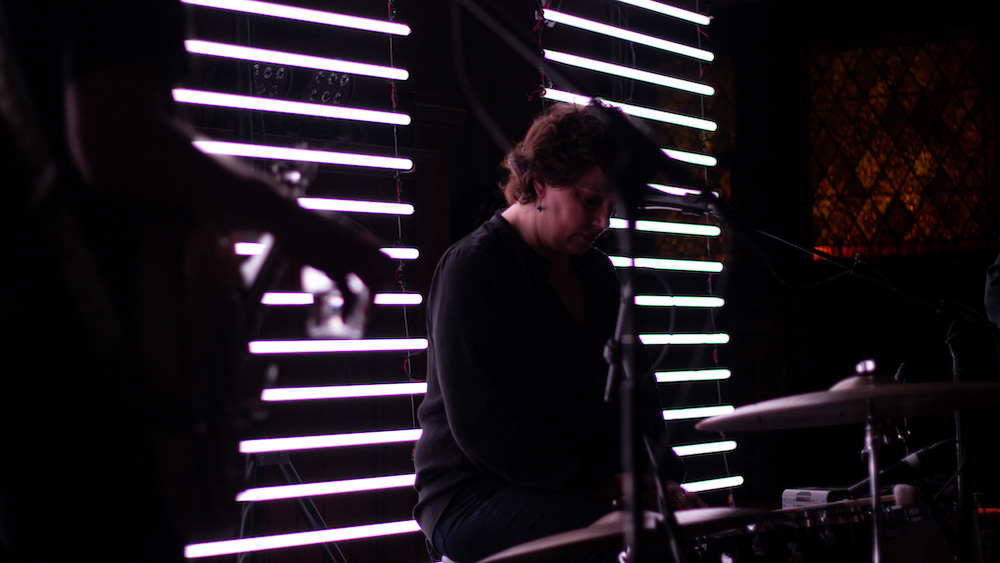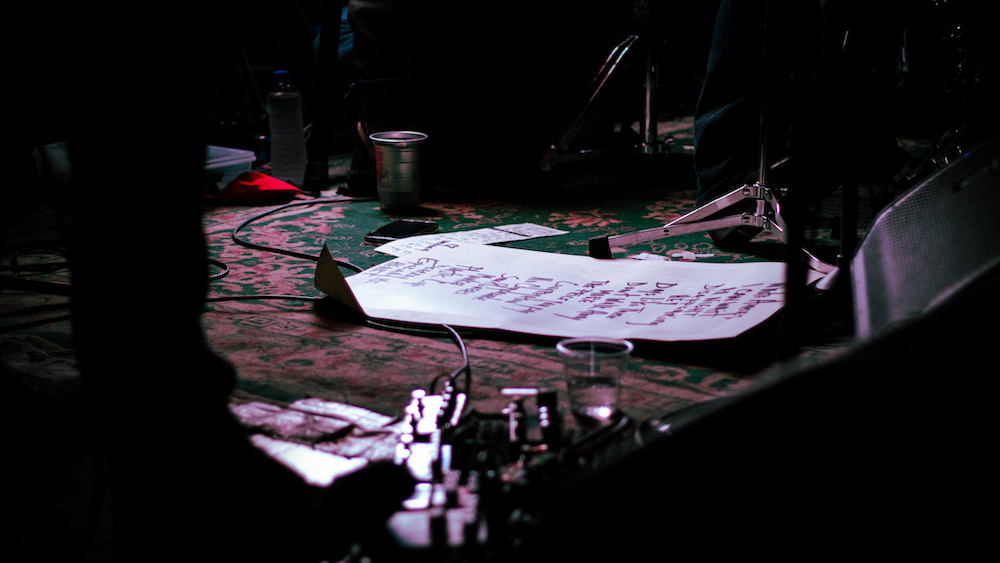The election of Donald Trump in 2016 prompted a groundswell of politically engaged art. But in a 2018 interview with NPR to promote their record Double Negative, Alan Sparhawk – co-leader of the band Low along with his wife, Mimi Parker – did something that stood out amongst the innumerable artists who were concerned with the state of the country: he wept.
Sparhawk was explaining the imagery of a book in the first track of the album when his voice caught and he asked the reporter to “gimme a second.” After collecting himself, he went on to say that the book’s symbolism represents “the idea that what’s going on is inevitable, that it’s already written. I refuse that. There has to be something you can decide to do to change the future – it’s not inevitable.”
Low’s determination to forego humor, delusion or irony when honestly reckoning with the despair of our present moment, and to be moved to tears by our existential uncertainty, has set the band on a path to an unlikely high point over twenty years and thirteen albums into their career. Their last two albums (HEY WHAT was released in 2021) with producer BJ Burton give form to the deformation happening around us – politically, ecologically, spiritually – that simply do not sound like any other music being made today. Continuing their improbable hot streak, both albums have also been nominated for Grammy awards.

Photo by Jorge Murga.
Their concert Thursday night at the Channing Murray Foundation brought the band to Urbana, and showed them to be in lockstep form. (I saw them live four years ago, and this was by far a stronger show.) Through their ninety-minute set, Sparhawk and Parker played most of HEY WHAT, translating Burton’s engineered manipulations into a more elemental and pared back aesthetic. At times, Sparhawk’s guitar sounded more like a ukulele – tinny and fragile – before an effects pedal would deliver the wash of noise they’ve perfected on their records. While Low can get loud, it’s not an aggressive or overly masculine relationship to volume. Rather, it’s more akin to an ocean wave – the blast comes at you and may knock you back, only to then envelop you and pull you in tighter.

Image by Jorge Murga.
The core of Low’s songs are the harmonies between Sparhawk and Parker. (This is how I first learned of the band. I was cleaning my apartment years ago when one of their songs came on a playlist, and Parker’s voice went straight to my brain. I doubt I’m the only person who has experienced this.) Her dulcet warble resembles something you would hear in a church choir, not a rock band. Sparhawk and Parker establish a melodious harmony, only to use their instruments to shred it apart with distortion. The play between beauty and destruction in each song makes for a fascinating listening experience.
The opening act, Divide and Dissolve, is an instrumental duo from Australia. In a similar spirit to Low, Takiaya Reed loops various wind instruments only to then pick up her guitar and obliterate the song to smithereens, aided by percussionist Sylvie Nehill. Reed interspersed her songs with impassioned – albeit visibly stoned – entreaties to the audience to end white supremacy and return land to indigenous tribes. Before hitting the first guitar note of each song, Reed would share a knowing look and wry smile with Nehill, and then unleash a fusillade of sonic sludge, until the song buckles under the weight, rendering the original loop unrecognizable. Divide and Dissolve is an aptly named band.

Image by Jorge Murga.
Sparhawk, to his credit, echoed Reed’s sentiments to begin conversations about white privilege, sharing that his ancestors are British colonizers from Massachusetts, whose legacy of genocidal bloodshed he thought should undo or break him on a given day, but doesn’t. He then dedicated the song “Sunflowers” to Reed, highlighting one of Low’s great lyrical preoccupations: the senselessness and lure of violence, both large-scale and interpersonal. “When they found your body / Giant X’s on your eyes,” the duo sing, as the song’s brutal imagery is contrasted by their feathery vocals.

Image by Jorge Murga.
If I had to pick a favorite Low lyric, I would choose one from “White Horses” off their new record: “There isn’t much past believing / Only a fool would have the faith / Though it’s impossible to say I know.” Low’s songs are paeans to the beauty of our world, which is worth fighting to preserve. But they also function as cautious elegies should we need to mourn our planet, or even humanity. Low thrillingly jolts its listeners into remembering that nothing is inevitable, nor should hard-won attributes like love, kindness, and hope be taken for granted. If they’re correct in thinking that having faith in a livable and most just future makes you a fool, count me in.








